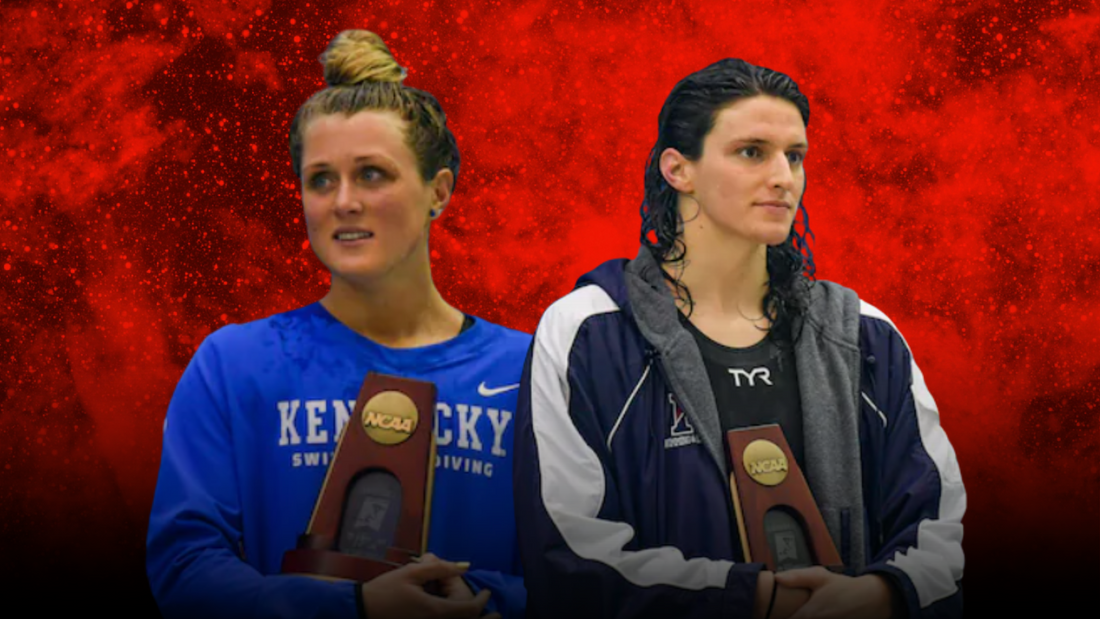
Lia Thomas vs. Riley Gaines: The Full Story Behind Their Ongoing Feud Explained
By Jayson Panganiban July 04, 2025 07:41
The rivalry between Lia Thomas and Riley Gaines has become emblematic of the heated national debate over transgender athletes competing in women’s sports. What began as a competitive tie in the pool has evolved into a complex and polarizing feud that extends far beyond athletics, touching on politics, identity, and social activism.
The story dates back to the 2022 NCAA Division I Women’s Swimming and Diving Championships, where Lia Thomas, the University of Pennsylvania’s transgender swimmer, and Riley Gaines, the University of Kentucky’s team captain, tied for fifth place in the 200-yard freestyle with times just under 1:44. This race was a pivotal moment, marking Lia’s first major championship after becoming the first openly transgender athlete to win an NCAA Division I title earlier that season. According to a former teammate of Gaines, tensions were already high before the race, but the tie “was the last straw” that propelled Gaines to speak out publicly against Thomas’s participation.
Initially, Gaines expressed support for Thomas’s transition and NCAA eligibility rules, telling The Daily Wire, “I am in full support of her and full support of her transition and her swimming career... but that’s the issue” referring to the NCAA’s policies. However, as Gaines’s profile rose within conservative circles, her rhetoric hardened. She began misgendering Thomas and framing her as a “cheat” who “stole a national title from a hardworking, deserving woman,” a tweet she posted in March 2023 exemplifies.
Gaines’s activism quickly expanded beyond swimming. She testified before the Kentucky Senate in support of legislation banning transgender women from women’s sports and became a spokesperson for the Independent Women’s Forum, a far-right group known for anti-trans advocacy. Her rise was bolstered by appearances on Fox News and involvement in political events, including attending the signing of former President Donald Trump’s executive order banning transgender women from women’s sports.
The feud intensified in July 2025 when the University of Pennsylvania, under pressure from the Department of Education and the Trump administration, agreed to invalidate all of Lia Thomas’s swim records and issue a formal apology to female athletes who competed alongside her. This move was part of a deal that restored nearly $175 million in federal funding to the university. Riley Gaines reacted with elation, calling the decision “historic” and the culmination of her “mission these past three years to get any sort of accountability, responsibility, and... transparency”.
Gaines has also publicly challenged critics of her stance, including a notable exchange with former ESPN host Keith Olbermann, whom she invited to race her to settle disputes over swimming credentials. Gaines emphasized her athletic achievements, noting she placed fifth nationally in college swimming without setting a personal best, while Olbermann downplayed her accomplishments.
The personal dimension of their feud is underscored by conflicting narratives about locker room experiences and team dynamics. Gaines has claimed she was forced to share locker rooms with Thomas without warning, describing it as intimidating. However, teammates have disputed these claims, stating that gender-neutral locker rooms were announced in advance and multiple options were provided.
The ongoing conflict between Lia Thomas and Riley Gaines encapsulates the broader societal debate on transgender inclusion in sports. While Thomas represents a push for recognition and authenticity, Gaines has become a symbol of resistance, backed by political and media forces opposed to transgender participation in women’s athletics. Their story is not just about swimming times or trophies but about the cultural and legal battles shaping the future of sports in America.
As Riley Gaines recently told TMZ Sports, “I am ecstatic” about the university’s decision but remains “a bit cynical” about UPenn’s motives, underscoring the contentious and unresolved nature of this feud. Meanwhile, Lia Thomas continues to advocate for her right to compete, making this rivalry a defining narrative in the evolving landscape of gender and sports.

































































